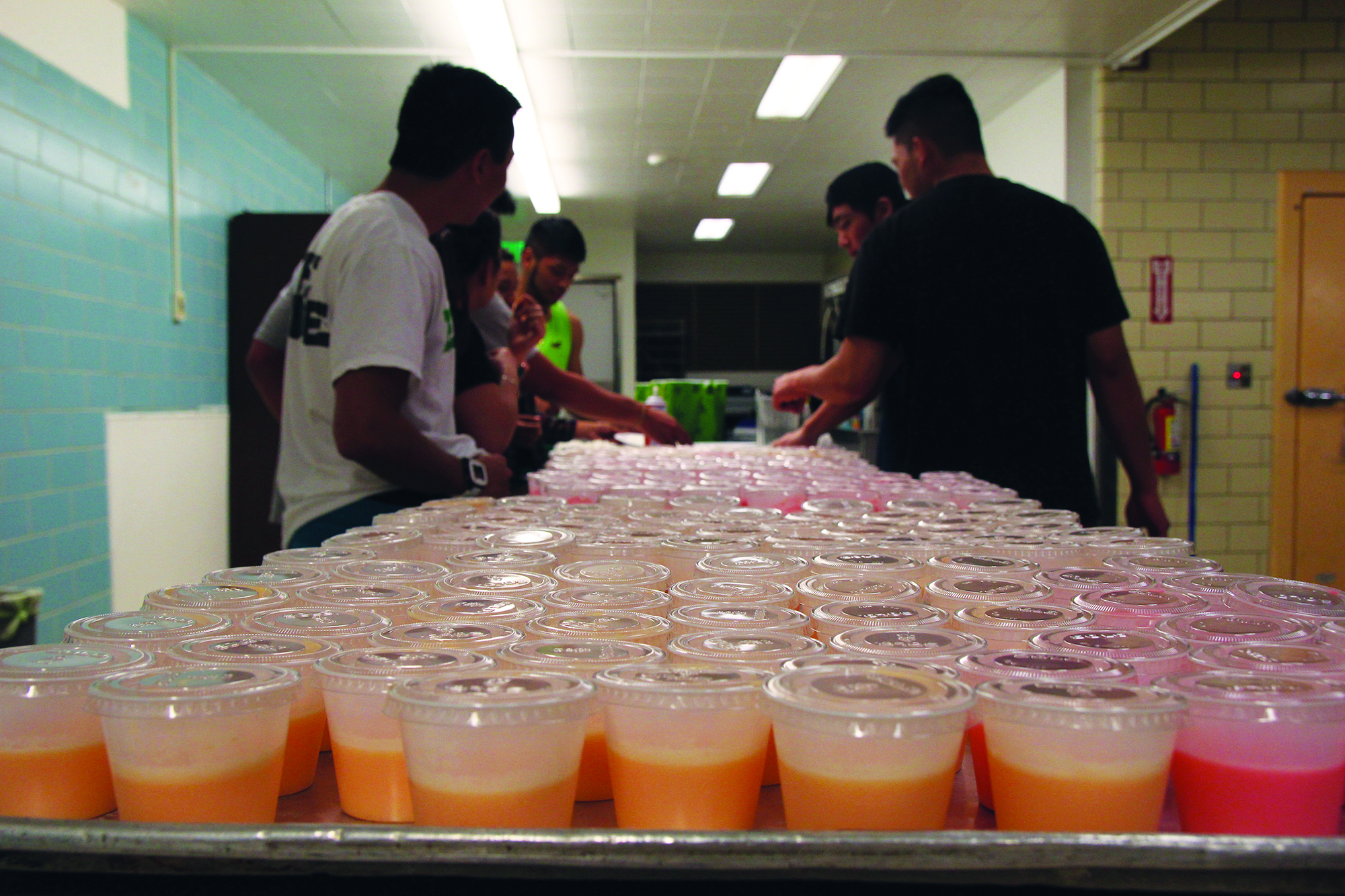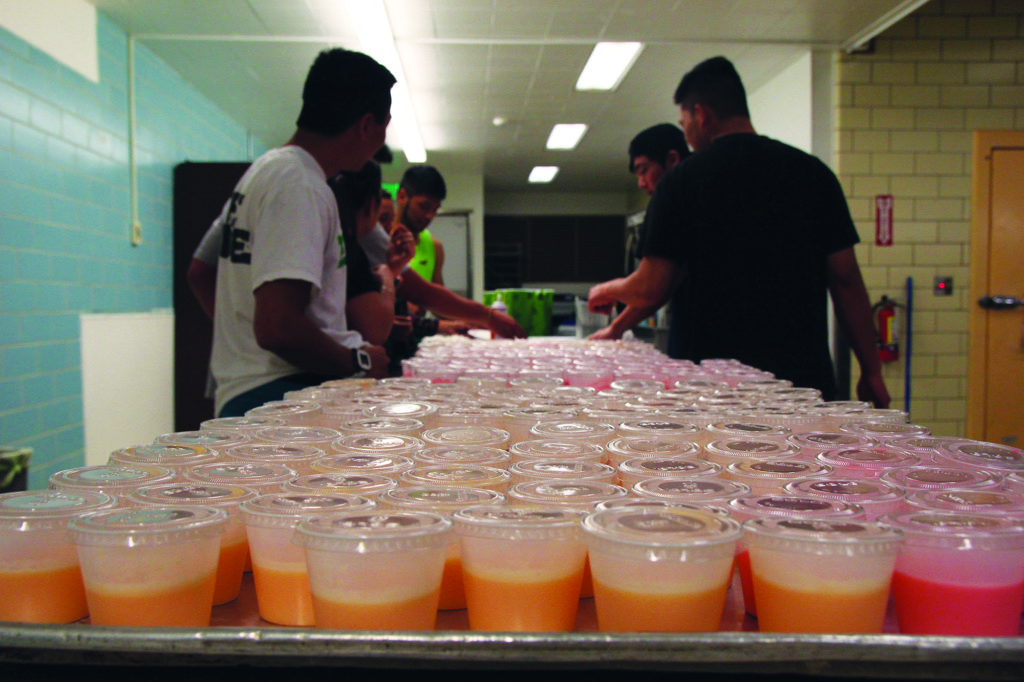Cultural dinners have long been a tradition at Seattle University.
This year these cultural events will look a little different. As a result of a change in policy, the food at these legacy events will now need to be catered by Bon Appétit’s food preparation staff, instead of by students as it has been for the last several decades.
This change comes as a result of a decision made by Seattle University’s legal team.
“Over the course of some logistical discussions during the summer, it came to the legal team’s attention that students preparing food for these events were working in commercial kitchens,” said Bon Appétit Manager Jay Payne. “This posed a problem in that students were not covered by insurance. Should a student be injured in the kitchen, those injuries could become a liability for the school.”
In an attempt to lighten the financial burden of paying for catering, Bon Appétit has waived the original fee of 15 percent of the cost of the ingredients, and they will prepare the food at no extra charge.
The concern, then, is that members of these clubs are no longer able to participate in the food preparation, which had served as a cultural experience for many club members.
“Student involvement in making the food is part of how we learn about the culture, and it’s a very important part of the culture,” said Gina Loh, Xuan chair for the Vietnamese Student Association. “It’s not just about eating it, and it’s not just about how it tastes; it’s the whole process that is important.”
While students won’t be able to do nearly as much hands-on work as before, Payne explained that he’s trying to allow hands-on work whenever possible.

Students have prepared all the food in almost all of the previous legacy events before policy change, including appetizers, desserts and beverages.
“We want to afford [students] the opportunity to do some limited kitchen work that wouldn’t involve fire and knives and more dangerous things under our supervision,” he explained. “So we’re offering to facilitate sort of more like a cooking class environment where they can continue to have some hands-on experience in a limited fashion.”
However, in order for students to participate in food preparation, the club must pay a chef to supervise.
“If the students want to be involved, we have to pay a $36.75 hourly fee for the chef,” explained Jamie Labrador, Barrio co-chair for the United Filipino Club. “We do what we call ‘lumpia rolling,’ so we usually have all of the members engaged in that…and we hadn’t allotted any money to pay for that extra time that we need for the chefs.”
Unfortunately, there isn’t much of a way around the decision to prohibit kitchen work for students.
“We understand the importance of preserving the culture of those events, and we totally understand that they had this tremendous team-building experience,” said Payne. “We want to do everything we can to preserve that, but we also want to do what the university has asked in terms of making sure that people aren’t in a dangerous environment in ways that they aren’t covered by insurance.”
Senior liberal arts and theatre major Victoria Deleon Guerrero expressed concerns regarding the cultural integrity of the food.
“Not only is this just a Fiesta, or it’s Barrio, or it’s a Luau,” Guerrero said. “It’s generations teaching generations, and to take that from us is like taking away our identity, because food really is a part of our identity.”
Further, Guerrero explained that many cultural clubs already take safety precautions.

For more than 50 years, cultural legacy events have had food that is cooked by students, with traditional recipes and ingredients.
“All of us need to be certified to even be in the kitchen,” she said. “We also have to hire a chef to oversee the process of the food…and then not only do we get the food-handlers permit, we get a hired chef, but we also have to have a health inspector see the food first to see the conditions of the kitchen and how we’re serving the food before we even serve it.”
Despite the many concerns, many students try to remain hopeful for the future of the legacy events.
“A lot of times, the fun part is collaborating with teammates and other club members, and actually preparing something that you can have ownership over,” explained Polo Mehrotra, president of the Indian Student Association. “[The policy] might infringe a little bit on that, and we might not have complete ownership of that because [we] won’t have control of the entire process, but you wouldn’t really find out until it’s implemented, and we find the pros and the cons for the first two or three times it’s happened.”
For now, many of the leaders of cultural clubs are trying to be proactive in finding a compromise.
“It’s just very disheartening that so many people were looking forward to being able to be involved in cooking the food, and preparing it, and learning the story behind these dishes, the childhood memories that come with them,” says Labrador, “and all of a sudden that’s being taken away from us.”
“It’s just been a lot to process, and it’s been a lot to try to figure out how to move forward from,” she concludes, “but we definitely will be trying to move forward with grace and resilience.”
Josh may be reached at
jmerchant@su-spectator.com










